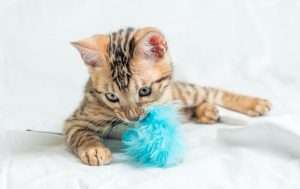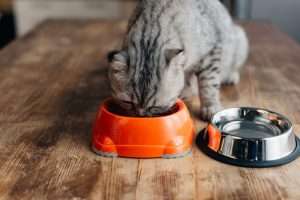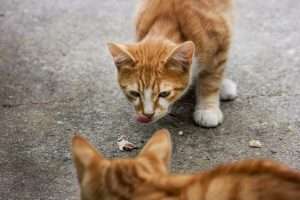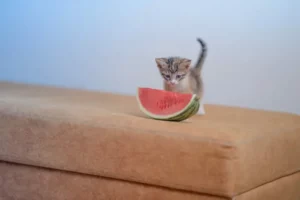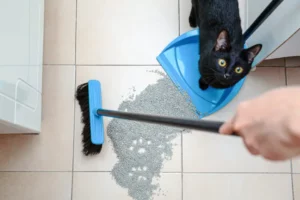Table of Contents
Cats are curious creatures and have a habit of trying out different foods. As a cat owner, it is important to understand what foods are safe for your feline friend and which ones can cause harm. One such food is cherries, which can be found in many households. Can Cats Eat Cherries? While cherries are safe for human consumption, the question remains whether they are safe for cats. In this article, we will explore whether or not cats can eat cherries and the potential risks and benefits associated with it.
It is essential for cats to have a balanced diet to maintain their health and well-being. A balanced diet provides all the necessary nutrients that cats need for healthy growth, development, and maintenance of their body functions. As a responsible cat owner, it is important to provide your feline friend with a diet that meets their nutritional needs. Let’s delve deeper into the topic and find out if cherries are safe for cats to eat.
Nutritional Value of Cherries for Cats
Cherries are a type of fruit that is commonly found in many households. They are known for their sweet taste and juicy texture. Cherries contain various vitamins and minerals that are essential for human health. However, when it comes to cats, cherries are not a necessary addition to their diet, and in fact, they can be harmful.
Cherries contain various vitamins and minerals such as vitamin C, potassium, and fiber. These nutrients are essential for a healthy human diet, but cats have different nutritional requirements. Cats are obligate carnivores, which means their bodies are designed to derive essential nutrients from animal sources. While cherries may contain vitamins and minerals that are beneficial to humans, they are not necessary for a cat’s overall health.
Feeding your cat cherries may result in gastrointestinal upset, such as vomiting, diarrhea, or abdominal pain. This is because cats’ digestive systems are not designed to handle large amounts of fruits and vegetables. Additionally, cherries contain a type of sugar called sorbitol that may cause digestive upset in cats.
Furthermore, cherries, particularly the stems, leaves, and pits, contain a toxic compound called cyanide. Cyanide is harmful to cats and can cause severe health problems, including respiratory distress, seizures, and even death. Therefore, it’s essential to keep cherries and any other foods containing pits away from cats.
In summary, while cherries may contain some beneficial nutrients for humans, they are not a necessary addition to a cat’s diet. Feeding your cat cherries can cause gastrointestinal upset and may even be toxic. It’s best to avoid feeding your cat cherries and instead opt for cat-friendly food that meets their nutritional requirements.
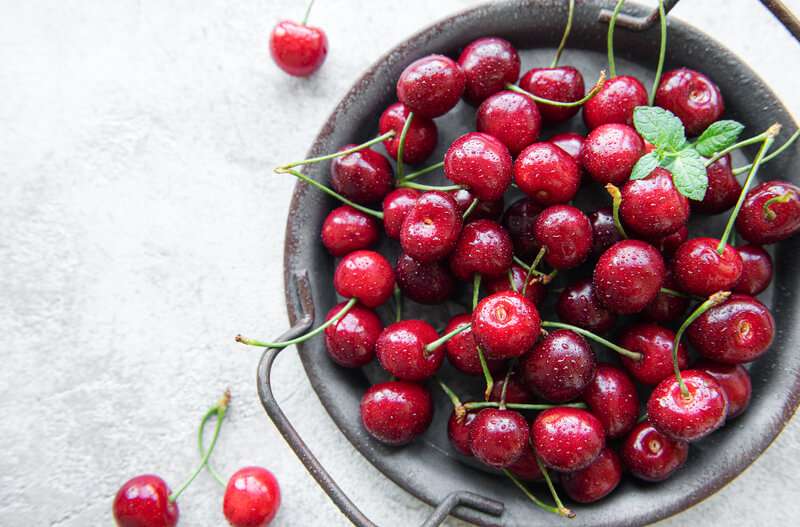
Can Cats Eat Cherries?
While cherries may seem like a healthy snack for humans, they are not necessarily safe for cats to consume. Here are some potential risks and harm of feeding cherries to cats:
Toxicity: Cherries contain cyanide, a poisonous substance that can be harmful to cats if consumed in large quantities. Even a small amount of cyanide can cause symptoms such as difficulty breathing, dilated pupils, and vomiting. In severe cases, it can lead to coma or death.
Digestive Problems: Cherries are high in fiber, which can cause digestive problems such as diarrhea or constipation if consumed in large quantities. Additionally, the pits of cherries can cause gastrointestinal blockages, which can be life-threatening for cats.
Allergic Reactions: Some cats may be allergic to cherries or other types of fruits. Symptoms of an allergic reaction can include swelling of the face, hives, and difficulty breathing. If your cat displays any of these symptoms after consuming cherries, seek veterinary attention immediately.
Health Conditions: Cats with certain health conditions, such as diabetes or kidney disease, may be more sensitive to the sugar content in cherries. Feeding cherries to cats with these conditions can lead to adverse health effects.
It’s important to note that even if your cat does not show any immediate symptoms after consuming cherries, it is still possible for them to experience long-term health effects. As such, it’s best to avoid feeding cherries to your cat altogether.
Exceptions where cherries may be safe for cats to consume include giving them a small amount of plain, pitted cherry as an occasional treat. However, it’s always best to consult with a veterinarian before introducing any new food into your cat’s diet, especially if they have pre-existing health conditions or allergies.
Alternatives to Cherries for Cats
While cherries are not recommended for cats, there are plenty of other foods that can provide the necessary nutrients for a healthy feline diet. Here are some safe and nutritious alternatives to consider:
Cooked Meat or Fish: Meat and fish are excellent sources of protein and other essential nutrients for cats. Cooked lean meats like chicken, turkey, and beef, as well as cooked fish like salmon and tuna, can be added to your cat’s diet in moderation. Be sure to remove any bones and skin, and avoid adding any seasonings or spices.
Eggs: Eggs are also a good source of protein for cats. They can be boiled, scrambled, or poached, and given to your cat in small amounts as an occasional treat. Be sure to fully cook the eggs and avoid adding any salt or other seasonings.
Vegetables: Some vegetables, like green beans and carrots, can be a healthy addition to your cat’s diet. They can be steamed or boiled and given to your cat in small amounts as a snack or mixed in with their regular food. Be sure to avoid vegetables like onions and garlic, which can be harmful to cats.
When introducing new foods to your cat’s diet, it’s important to do so gradually and in small amounts to avoid any digestive upset. Always consult with your veterinarian before making any major changes to your cat’s diet.
In addition to adding safe and nutritious foods to your cat’s diet, it’s also important to ensure that they are getting a balanced diet overall. This means providing a variety of different foods that contain all the necessary nutrients, including protein, fat, vitamins, and minerals.
One way to ensure that your cat is getting a balanced diet is to choose a high-quality commercial cat food that is specifically formulated to meet their nutritional needs. Look for foods that are made with real meat as the first ingredient and do not contain any artificial preservatives, flavors, or colors.
By providing your cat with a healthy and balanced diet, you can help ensure that they live a long and happy life.
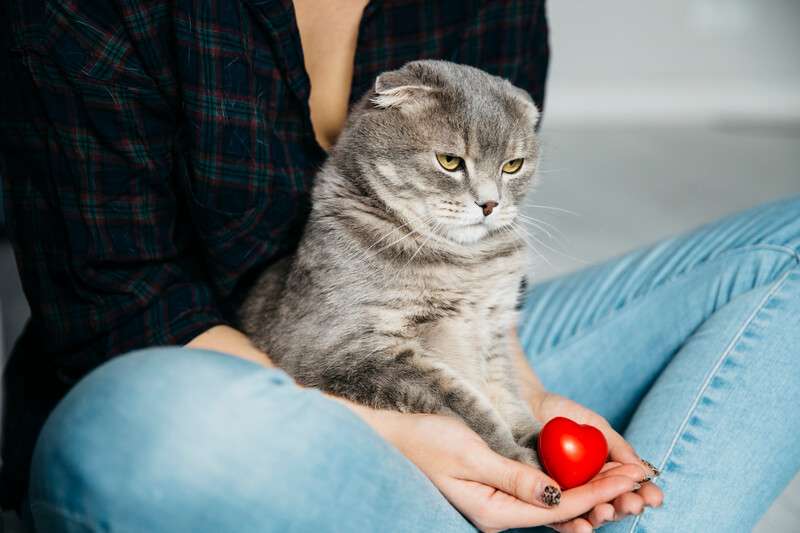
FAQs
No, all types of cherries are potentially harmful to cats due to their toxicity. It's best to avoid feeding your cat cherries altogether.
While cherry-flavored human foods may not be toxic to cats, they often contain high levels of sugar and artificial ingredients that are not healthy for cats. It's best to avoid feeding your cat any human foods, including those with cherry flavoring.
Cats require a balanced diet that includes high-quality protein, essential fatty acids, vitamins, and minerals. This can be achieved through a diet of commercial cat food or a combination of commercial food and home-cooked meals that are properly balanced and meet the nutritional needs of your cat.
While cats can have allergies to certain foods, including fruits like cherries, it is rare. If you suspect your cat may have a food allergy, it's important to speak with your veterinarian to determine the cause and develop an appropriate treatment plan.
If you suspect that your cat has consumed cherries, it's important to seek veterinary care immediately. The veterinarian will likely induce vomiting and monitor your cat for any signs of toxicity or other adverse reactions.
Conclusion
In conclusion, cherries are not a necessary addition to a cat’s diet and can potentially be harmful. While cherries do contain some vitamins and minerals, the risks of toxicity and digestive problems outweigh any potential benefits. It is important for cat owners to understand what foods are safe for their pets to eat and to prioritize a balanced diet. Alternative sources of nutrients, such as cooked meat or fish, eggs, and vegetables, can provide cats with the necessary nutrients without the potential risks associated with feeding them cherries. It is also important to note that certain cats may have allergies or health conditions that make some foods unsuitable for them. As always, it is recommended to consult with a veterinarian if you have any questions or concerns about your cat’s diet or health. By providing your cat with a balanced and appropriate diet, you can help ensure their long-term health and well-being.




